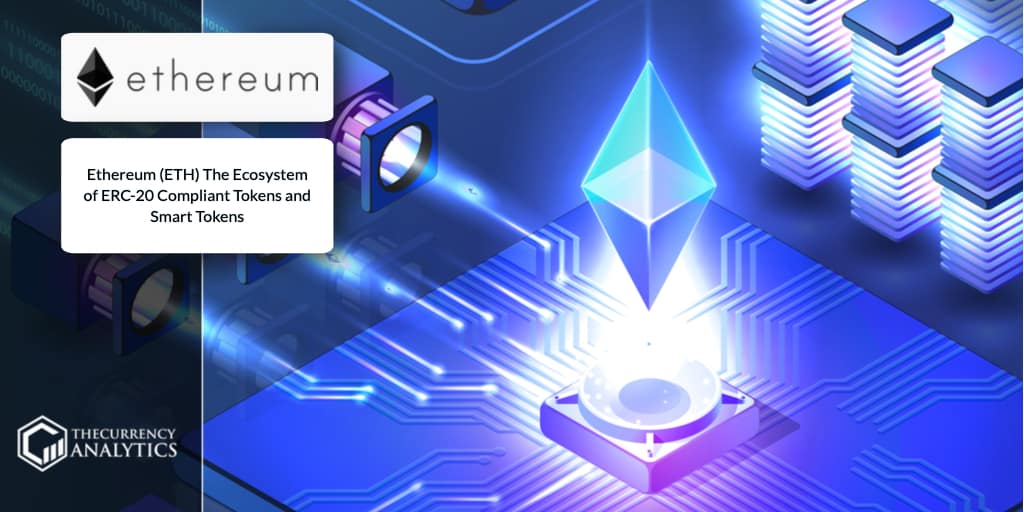
Most of the Ethereum smart contracts are ERC-20 compliant. For clarity, ERC-20 tokens are designed for exclusive use within the Ethereum Platform.
The ERC-20 tokens are designed with a list of standards so that they can be shared and exchanged for other tokens in the Ethereum Network. The standards for the ERC-20 has been created by the Ethereum community. These standards are made up of 3 optional rules, and 6 mandatory rules. The ERC-20 tokens can be transferred to an ERC-20 compatible crypto-wallet.
The compatibility between ERC-20 is ensured to provide for exchangeability. By following a standard set of rules, it will be easy for the tokens following a protocol communicate with each other. This also includes token purchase rules and interaction rules. Therefore, ERC-20 compatible crypto-wallet for the interactions between such tokens.
The interactions between tokens take place on the Ethereum Virtual Machine in a decentralized manner. Every ERC20 token solves a significant problem. Reportedly, there are more than 200,000 ERC-20 compatible tokens on the Ethereum mainnet, which means there is a unique ERC-20 supporting every smart contract or group of smart contracts.
Those who already have an Ethereum account with ERC20 tokens will be able to view the rest of the ERC-20 tokens on Ledger Live.
All the development work about smart contracts on the Ethereum Network takes place using Solidity. There are several other languages which can be used for this purpose. So, creating a simple ERC20 smart contract can happen in under an hour with some basic tutorial.
In simple terms, the ERC20 standard defines a set of functions which should be followed by all ERC20 tokens to permit integration with other contracts, wallets, or marketplaces. This set of function is very short and basic.
The ERC20 works like an external user like a crypto-wallet app to find out a user’s balance and transfer funds from one user to another with proper authorization.
The events governed by the token will be invoked when a user is granted rights to withdraw tokens from an account, and the tokens are actually transferred and exchanged with each other.
The power of Ethereum Smart Contract lies in ensuring what is the balance in value and what is the permitted transaction. Practically, exchange of value is important to ensure the completion of the execution of a smart contract.
The entire network is ruled by logic and value exchange. The problem on the Ethereum Network that is getting sorted now to solve the scalability issues, which means when lot of people log on to the network the transaction speed will go down and anyone who is able to spend the required value to get the work going by paying the gas price will be at advantage.
When there are more people, manageability is an issue and keeping the gas fees high is going to prevent the entire idea of decentralization and affordability. Developers are working to fix this issue to make Ethereum the world Internet.
Support our writers by donating Dash or any Crypto you want via this link.
Thank You, The TCAT team.
Get the latest Crypto & Blockchain News in your inbox.